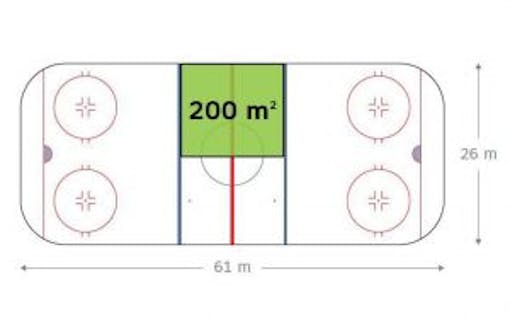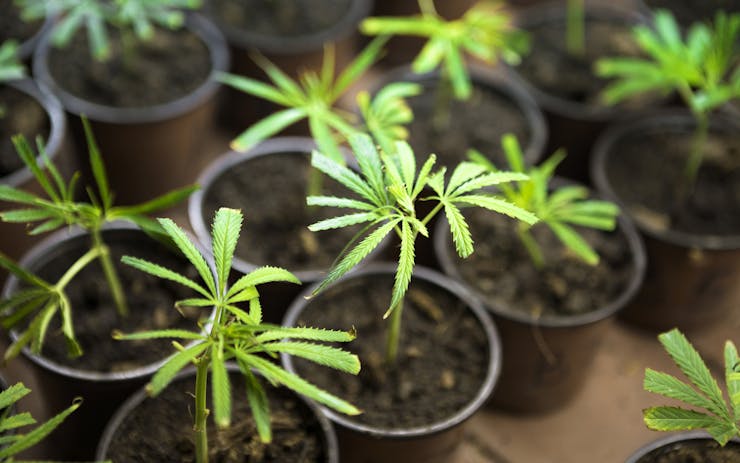When the federal government unveiled its proposed cannabis regulations on March 19, an animated public dialogue followed. Industry stakeholders, commentators and others debated the merits of the proposed labelling and packaging regulations, which many people see as too restrictive. In all the commotion, another proposed regulation garnered little attention.
Full-size grow-ops are required to maintain intrusion-detection systems and constant visual monitoring of its products. Such measures won’t be required of small-scale operations.
The proposal, which was released after a two-month consultation period, outlines how Ottawa intends to regulate small-scale cultivators and processors. The plan is now receiving a lukewarm response from big and small producers.
The federal government is proposing that licensed micro-cultivators be allowed to grow in a plant canopy area of no more than 200 square meters or 2,150 feet. To illustrate this point, the government released an image tailor-made for a Canadian audience—a diagram of a North American-sized hockey rink with the space between two blue lines demarcated. (See below.)

These cultivators would sell their product to micro-processors or to big licensed producers, who would then sell them to the public or to other licensed producers.
Micro-processors would able to process as many as 600 kilograms of dried cannabis annually, an amount which the government estimates is the maximum production capacity of a micro-producer.
Different Levels of Security
In addition, the physical security requirements for micro-cultivation and micro-processing would be dramatically reduced. Whereas full-size grow-ops are required to maintain an operating intrusion detection system and provide constant visual monitoring of its products, such measures won’t be required of small-scale operations.
The government hopes these diminished restrictions will enable small-scale growers to thrive without having to resort to black-market sales to cover security costs.
The government hopes these diminished restrictions will enable small-scale growers and processors to thrive without having to resort to black-market sales to cover mandatory security costs.
To ensure that small-scale cultivators don’t get around the rules by acquiring several licenses for a single location, the government is considering restricting the number of licenses that can be issued for a single location.
David Robinson of the Craft Cannabis Association of BC, an advocate for small- and medium-scale producers in the province, has criticized the proposed size restrictions, saying that they wouldn’t allow small cannabis businesses to grow. “It’s just really going to limit the scale that the micro-producers can contribute to the marketplace,” he told the CBC. “Micro-producers represent the folks who have built this industry. They are no doubt the producers of the highest quality.”
The acting executive director of Cannabis Canada Association, which represents the majority of the country’s licensed producers, has concerns about minimizing security regulations for micro-cultivators. “We support a diverse cannabis industry. We encourage and support the inclusion of micro-cultivators in the marketplace and we will work with them if they enter the marketplace,” Allan Rewak told Leafly. “But we also feel there should be uniform security measures applied to all producers regardless of their size.”
“We feel there should be uniform security measures applied to all producers regardless of their size.”
Rewak said his organization doesn’t want to see micro-cultivators face “undue economic burden” but said it’s important to “ensure a level playing field.”
Though addressing this issue isn’t a priority for Cannabis Canada Association, Rewak said he will be bring it up in consultations with regulators and other government officials.
Darren Karasiuk, vice president of strategy for MedReleaf, also has reservations about the government proposing lower security requirements for small-scale producers and processors. In an interview with Leafly, he said he was pleased the government was taking a “risk-based approach to cannabis regulation” but added that security concerns are the same for every producer regardless of size, so security requirements should be the same across the board.
“That being said, we recognize the need to bring more people into the fold to help the Canadian cannabis industry flourish and position us as a global leader in this space,” Karasiuk said.
When asked if MedReleaf, one of largest licensed producers in Canada, would be open to the possibility of doing business with small-scale players down the road, he replied that the company would “continue to look at all opportunities to further establish [its] position as a premier producer of premium cannabis.”
The proposed regulations would not be implemented until after passage of the Cannabis Act. That bill is before the Senate right now and it’s expected to pass in June.





